PRI Digital Forum:
Investor Action for Social Transformation
Meet our speakers

Elena Espinoza, Senior Specialist, Social Issues, PRI
Elena is the Senior Specialist, Human Rights and Social Issues for the Principles for Responsible Investment (PRI) where she supports investors’ efforts to address human rights and social issues such as diversity, equity and inclusion, working conditions and modern slavery and their incorporation into investment decision making and active ownership. Elena has been with the PRI since 2018. Prior to the PRI, Elena worked as Head of Advisory Services at Business in the Community (BITC), the oldest and largest business-led membership organisation dedicated to responsible business in the UK. There, she managed BITC’s work in corporate strategy development, impact measurement, and sustainability reporting and benchmarking. Elena holds an MBA from The University of Chicago Booth School of Business, an MSc on Environment and Sustainable Development from University College London, and a BEng in Production Engineering from Simon Bolivar University (Caracas, Venezuela).
Session
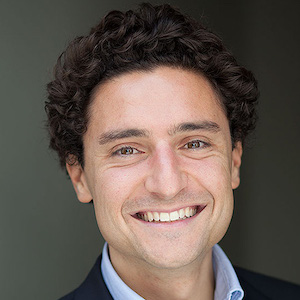
Damiano de Felice, Director of Strategy, Access to Medicine Foundation
Damiano de Felice is Director of Strategy at the Access to Medicine Foundation. He is responsible for the Foundation’s strategy setting and implementation activities, with a focus on enhancing the Foundation’s long-term impact on access to medicine and on securing its sustainability. As such, Damiano leads the Foundation’s interactions with governments and investors and is responsible for fundraising. He is an expert in the relationship between the pharmaceutical industry, access to medicine and impact investing, and he has led the Collaborative Engagement on Access to Medicine and SDG 3 to become the world’s fourth largest ESG initiative. During his career, Damiano has advised international organisations, companies, governments and NGOs, including the UN Working Group on Business and Human Rights and the Italian Ministry for Economic Development. Damiano holds a PhD in International Relations from the London School of Economics.
Session
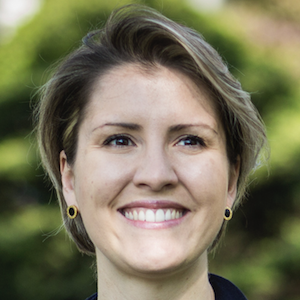
Julia Monfrini Peev, Founder, PACE Healthcare Capital
With over $1B invested in healthcare, Julia is the founder of PACE Healthcare Capital, an early-stage investment fund focused on healthcare tech and digital health businesses. Daughter of entrepreneurs, she is passionate about building successful businesses solving critical issues in healthcare. Before starting PACE, Julia spent 10 years investing in healthcare private equity. She was a Director at CDPQ, Canada’s second largest pension plan with $300B of AUM, where she co-led direct PE investments in healthcare in North America and LATAM. Prior to CDPQ, Julia was at Monitor Clipper Partners, a $2B mid-market PE fund investing in founder-led businesses in North America and Europe. Julia started her career at Merrill Lynch, in Leveraged Finance and Healthcare M&A. Julia holds an MPA from the Harvard Kennedy School where she was the recipient of the Marguerite Carriere fellowship and A.L. Littauer award, and a Masters in Management from ESCP Europe.
Session
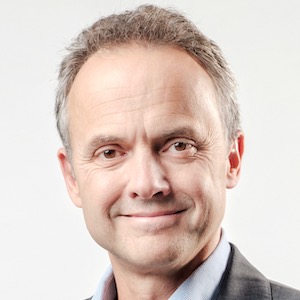
Michael Schröter, Co-Head of Sustainable Healthcare Equity, HSBC AM
Dr Michael Schröter joined HSBC Asset Management in Zurich end 2019 as Co-Head Sustainable Healthcare Equity. Together with Dr Nathalie Flury, Michael manages the HSBC GIF Sustainable Healthcare Fund which was launched in July 2021. Prior to HSBC Michael co-founded Swiss boutique asset management firm Viopas Partners which specializes in sustainable healthcare investments. Michael brings over 20 years of pharmaceutical and biotech industry experience, where he held various executive roles ranging from R&D to commercial in the US, Asia and Europe.
Session

Nabylah Abo Dehman, Head of Stewardship, Social Issues and Human Rights, PRI
Nabylah joined the PRI in 2017, where she focused on social issues as part of the ESG team for four years before recently joining the Stewardship team as Head of Stewardship, Social Issues and Human Rights. At the PRI, Nabylah supports investors’ efforts to address social issues and is responsible for overseeing the new PRI collaborative stewardship initiative on social issues and human rights. Prior to joining the PRI, Nabylah completed her PhD in Political Science at Sapienza University.
Session
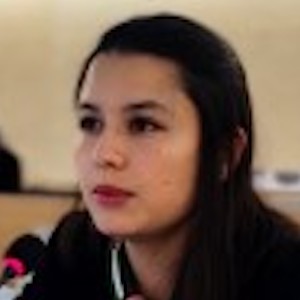
Maria-Isabel Cubides, Head of the Globalization and Human Rights Desk, International Federation for Human Rights
Maria Isabel Cubides is a Human Rights lawyer, expert on Business and Human Rights, admitted to the bar in Paris and Colombia, with extensive experience in international and public policy advocacy, strategic litigation and engagement in the field of business and human rights. She has worked across all continents and over 30 countries to redefine corporate practice and strengthen legislations to protect human rights and the environment. For the past 6 years she has been part of the Globalization and Human Rights Desk at FIDH where she has led numerous documentation, litigation, advocacy and communication actions in the field of business and human rights together with multiple stakeholders, including civil society, governmental institutions, Business and investors. She has an advanced Master degrees in Public International Law (Leiden University) and Anthropology of Law (Sorbonne University -Paris I).
Session
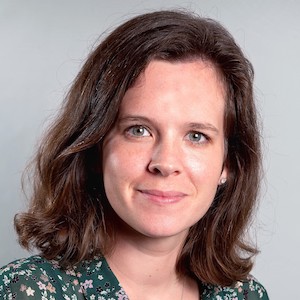
Caroline Eriksen, Senior Analyst, Social Initiative, Norges Bank Investment Management
Caroline Eriksen is a Senior Analyst in the Social Initiatives team at Norges Bank Investment Management (NBIM). In this role, she leads NBIM’s engagement with portfolio companies on human rights and children’s rights. Prior to joining NBIM in 2018, Eriksen worked for the Norwegian Parliamentary Ombudsman. She has a broad range of experience working on social topics, human rights, and responsible business conduct including from Human Rights Watch, UNESCO, and the Norwegian Mission of Norway to the UN. Eriksen holds a B.A. in International Affairs from the American University of Paris and M.A. in Human Rights Studies from Columbia University.
Session
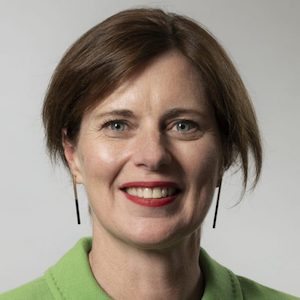
Kate Griffiths, Executive Manager, Public Policy and Advocacy, Australian Council of Superannuation Investors (ACSI)
Kate is responsible for ACSI’s public policy and advocacy program. Kate was formerly the Head of Governance, Risk and Audit Committee and Disclosure at BHP, and, prior to that, a senior associate at Blake Dawson (now Ashurst). Kate holds a Bachelor of Laws (with honours) and a Bachelor of Arts. She is a graduate of the Australian Institute of Company Directors Course and a fellow of the Governance Institute of Australia.
Session

Dan Neale, Lead, Social Transformation, World Benchmarking Alliance
Dan is the social lead within the World Benchmarking Alliance, responsible for establishing the framework to assess the 2,000 keystone actors on core social aspects. Previously, Dan led the Corporate Human Rights Benchmark (CHRB), doubling the number of companies assessed and setting up UNGP Snapshot assessments, supporting the movement for mandatory human rights due diligence. Before CHRB, he spent five years working with extractives and renewable companies on social risk and impact management in the UK, Middle East and sub-Saharan Africa. He sits on the IHRB’s international advisory committee, the PRI technical advisory group for human rights and social impact, and is on the expert working group supporting the development of EU social reporting standards.
Session
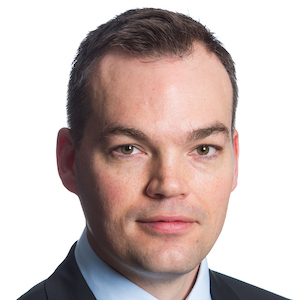
Dean Alborough, Head of ESG, Old Mutual Alternative Investments
Dean Alborough is currently the Head of ESG at Old Mutual Alternative Investments (OMAI). OMAI is one of the largest private alternative investment managers in Africa, with US$4.6 billion under management, made up of Infrastructure (AIIM), general Private Equity, Impact Funds, Hybrid Equity and International Fund of Funds. Dean is an experienced ESG practice lead in the private markets, with more than 13 years’ experience in ESG, integrated environmental management, sustainability and environmental science. Dean leads the design and implementation of ESG risk and positive impact frameworks, fit-for-purpose ESMSs and ESG data management and reporting. Dean has experience in the broad discipline of ESG including Environmental and Social (ES) Screening, ES Impact Assessments (ESIAs), ES Due Diligence, Risk Assessment and ES Management Systems (ESMS). His experience includes working with and applying specialist biodiversity, biophysical and socio-economic knowledge, including climate change related work from mitigation to adaptation.
Session
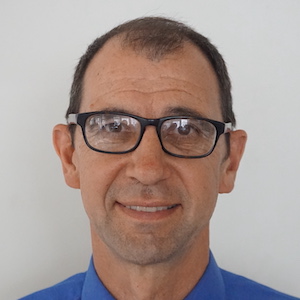
Phil Bloomer, Executive Director, Business & Human Rights Resource Centre
Phil is the Executive Director of the Business and Human Rights Resource Centre that seeks to strengthen accountability, empower the business and human rights movement, and advocate for transformational change that puts human rights at the heart of business. Previously Phil was Campaigns and Policy Director at Oxfam, after 11 years in Latin America working on human rights and development issues.
Session

Remi Fernandez, Specialist Human Rights & Social Issues, PRI
Remi is the Specialist, Human Rights & Social Issues for the Principles for Responsible Investment (PRI) where he leads on the recent work programme looking into social issues such labour standards, low carbon transition, demographic change as well as artificial intelligence & technology. Remi has previously worked in the PRI’s signatory relations team, where he engaged with signatories on the new and former Reporting Frameworks and how to apply them to multi-asset strategies. Remi holds a masters degree in Sustainability and Social Innovation from HEC Paris as well as a BComm from the University of Sydney.
Session
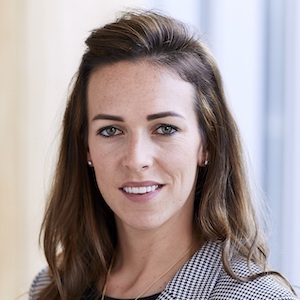
Marina Johnson, Sustainability Associate, Actis
Marina joined the Sustainability team at Actis in 2019 with over 10 years’ experience consulting on Social and Environmental performance in developing markets. Actis is a global sustainable infrastructure investor. Marina leads the Impact Measurement practice at Actis alongside identifying operational ESG considerations in the due diligence of transactions, driving strong ESG performance in portfolio companies, and pursuing value creation opportunities. Before joining Actis she was a senior sustainability consultant at ERM and prior to this AECOM. She primarily focussed in the area of community and social performance in Companies and transactions, ensuring alignment with international best practice. She advised a variety of financial institutions and public and private developers investing in sectors such as power generation, infrastructure, extractives, and agrochemicals across Europe and Africa. Marina holds an MSc in Geography from Oxford University, is a Chartered Environmentalist through IEMA and a certified expert in Sustainable Finance through Frankfurt School of Finance and Management.
Session
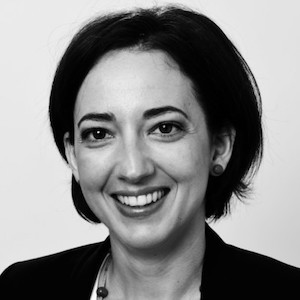
Virginie Vitiello, Environmental and Social Head, STOA
Virginie Vitiello is the Environmental and Social Head of STOA, the investment company set up 4 years ago by CDC and AFD, to invest in equity and quasi-equity in infrastructure and energy projects in emerging and developing countries. Virginie is an experienced ESG practitioner working across project finance and private equity including 4 years in Africa (Congo) and 4 years abroad (USA, UK). Virginie’s experience spans working with companies in the private sector, both in developed and emerging markets to effectively manage risk, realise opportunity and drive holistic impact. Sectors of expertise include infrastructure, renewables, and industry. Her expertise in auditing, impact analysis, her knowledge of the local and operational context as well as the financial implications allows her to apply the international standards in a pragmatic way. At STOA, Virginie works across the investment lifecycle from investment screening through to ESG due diligence and monitoring. She also brings technical expertise across contemporary social issues including labour & working conditions, equity and inclusion, safeguarding and addressing gender-based violence, community development and social investment, resettlement, community health, safety and security, contextual risk analysis and stakeholder engagement planning.
Session

Jessie Cato, Natural Resources & Human Rights Program Manager, Business and Human Rights Resource Centre
Jessie joined the Resource Centre in August 2020. She is responsible for coordinating the work related to natural resources, including leading projects on renewable energy and transition minerals, while also supporting the Resource Centre’s broader work on human rights in extractive industries, and other natural resource-related sectors. Jessie has broad experience in natural resource governance, and prior to joining the Resource Centre worked at Oxfam America where she coordinated the Extractive Industries Knowledge Hub. She was the National Director for Publish What You Pay (PWYP) Australia from 2015-2019 and sat as a Civil Society representative on the Australian Extractive Industries Transparency Initiative (EITI) Multi Stakeholder Group from 2016-2019. Jessie has also worked in Timor Leste as a Gender Officer for Seeds of Life, and as a Ministerial Advisor for the South Australian Government, with responsibility for the portfolios of Regional Development, State/Local Government Relations, and the Status of Women. Jessie holds a Bachelor of Social Sciences from the University of Adelaide and has undertaken training on natural resource governance at the Central European University (CEU), Universitas Gadjah Mada (UGM), and the University of Queensland. She is a dual national of Australia and the UK.
Session
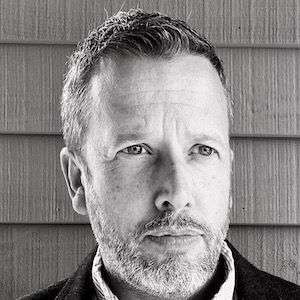
Sam Jones, President, Heartland Initiative
Prior to co-founding Heartland Initiative, Sam served as Associate Director of the Human Rights Program at The Carter Center, managing programs on human rights and industrial mining in Democratic Republic of Congo and as visiting faculty for the Masters in Development Practice program at Emory University. Sam previously managed community mobilization and development programs in Iraq and Jordan and led emergency assessment missions to Palestine, Lebanon, and Afghanistan for Counterpart International. Sam worked on community infrastructure programming for American Near East Refugee Aid in the Gaza Strip. He earned his master’s degree in International Peace and Conflict Resolution from American University’s School of International Service. Sam is a native of western North Carolina and a graduate of the University of North Carolina-Asheville.
Session
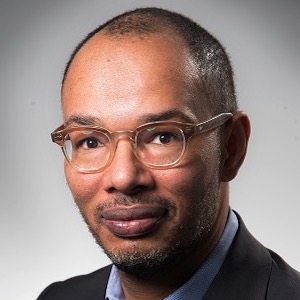
Gerald Pachoud, Managing Partner, Pluto Advisory
Gerald Pachoud is the managing partner of Pluto &Associates, a boutique advisory firm focused on global public policy and corporate responsibility, working with a network of experts and like-minded public and private organizations. He previously held various positions in the United Nations and the Swiss administration, notably initiating and leading the program on business and human security at the Swiss Ministry of Foreign Affairs. From 2005 to 2011, Gerald had the honor and the pleasure of serving as the Special Adviser to the Secretary General’s Special Representative on business and human rights, Professor John Ruggie. In this role, he was closely involved in the conceptual, political and operational development of the “protect, respect and remedy” framework, and in the drafting of the UN Guiding Principles on business and human rights. After the SRSG mandate and until 2015, Gerald worked in the Executive Office of the UN Secretary General in New York, focusing on formulating strategy and advising the senior leadership on UN engagement with the private sector, particularly in the context of the (upcoming at the time) Sustainable Development Goals. He left the public service in late 2015 to start Pluto. Gerald serves as senior advisor to the Global Business Initiative on Human Rights, a business-led initiative of a core group of 18 major corporations headquartered in Asia, Europe, Latin America, and North America and TrustWorks Global, an organization engaging public and private actors to resolve intractable violent conflicts. He also sits on the advisory boards of various organizations and companies.He has a BA in international relations and a MA in international law from the University of Geneva and the Graduate Institute for International Studies. He was a research fellow with the Kennedy School of Government at Harvard University.
Session

Anita Ramasastry, Henry M. Jackson Professor of Law, Member of UNWG
Anita Ramasastry is the Henry M. Jackson Professor of Law and the Director of the Sustainable International Development Graduate Program at the University of Washington School of Law. She is one of the leading academics in the field of business and human rights. She has led a variety of major research projects focused on the role of business in conflict including the Red Flags Project of International Alert, the Commerce Crime and Conflict Project of the Fafo Institute for Applied international Studies, and served as a commissioner for the expert panel that developed the Corporate Crimes Principles for Amnesty International. She leads the UN Working Group’s work on business, human rights and conflict and finance and investment. Anita was first appointed to the UN Working Group on Business and Human Rights in 2016 and served as its chair in 2018 and again in 2020. In 2021, she also was appointed as the Special Representative on Combatting Corruption at the OSCE. Anita is a founding Co-Editor in Chief of the Business and Human Rights Journal, published by Cambridge University Press, and Co-President of the Global Business and Human Rights Scholars Association.
Session
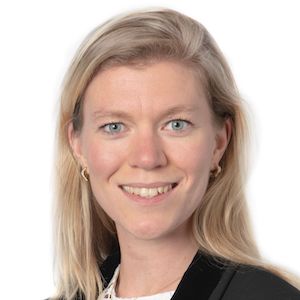
Bettina Reinboth, Director of Human Rights and Social Issues, PRI
Bettina joined the PRI in August 2016. She is responsible for leading a team with deep expertise in social issues and their relevance to companies, investors and financial markets. She oversees strategic initiatives on social themes and the thought leadership programme in the area- shaping research, analysis, investor guidance and policy guidance for investors across topics including human rights, labour practices, inequality, social dimensions of climate strategies, and diversity to name a few. Prior to joining the PRI, Bettina worked for DNV in London, advising multinational companies on their sustainability strategy, stakeholder engagement, research and best practice, with a particular focus on labour and human rights and ways business can implement the UN Guiding Principles of Business and Human Rights. Bettina holds an MSc in Development Management from London School of Economics and Political Science, and a BA in Geography from King’s College London.
Session
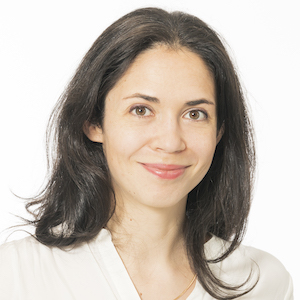
Laurene Chenevat, Policy and Advocacy Lead, Mirova
Laurene is in charge of leading and coordinating Mirova’s policy and advocacy work on sustainable finance. Mirova is a French asset manager fully dedicated to sustainable investment (affiliate of Natixis Invesmtent Managers). Since 2017, Laurene has more specifically accompanied Mirova’s contribution to the development of sustainable finance in Europe and in France, with a specific focus on the EU Action plan.
Session

Meghna Mehta, Vice President, ESG Impact & Screening Research, MSCI
Meghna Mehta is a Vice President in MSCI ESG Research. She specializes in research of green and social bonds, and in assessment of companies’ performance against the United Nations Sustainable Development Goals. Prior to working with MSCI, she has worked with KPMG, advising clients across different industries on their sustainability goals. She is a biomedical engineer and has done her master’s in industrial safety and environmental management.
Session

Nikolaj Pedersen, Senior Lead, Human Rights, PRI
Nikolaj Pedersen is the PRI’s senior lead on human rights. His role is to design and implement projects in collaboration with signatories and partners to support the implementation of international human rights standards in the investment industry. He is also an observer member to the Social Taxonomy sub-group of the EU Platform for Sustainable Finance. Nikolaj previously held roles in the PRI’s Signatory Relations team servicing institutional investors around the world, and in the Sustainable Financial System department leading research on how to foster sustainability in pension systems and the investment consulting industry. Prior to joining the PRI, he worked in the business and human rights field in Denmark in both consulting and the private sector. He has a master’s degree in International Studies from Aarhus University and holds financial qualifications IMC and CAIA.
Session
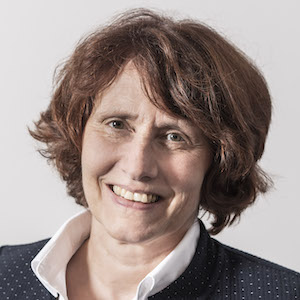
Antje Schneeweiß, Rapporteur, Sub-Group on Social Taxonomy of the EU Platform for Sustainable Finance, and General Secretary Arbeitskreis Kirchlicher Investoren in der Evangelischen Kirche in Deutschland
After completing her master’s degree in philosophy and English, Antje Schneeweiß initially worked for sustainable asset management companies until 1996, when she took over the department of “socially responsible investments” at the SÜDWIND institute. Since the end of 2020, she works as the general secretary of the Working Group of Church Investors of the Protestant Church in Germany (EKD). She has published, among other things, the “Kursbuch Ethische Geldanlagen” with Fischer Taschenbuchverlag, as well as studies on commodity investments, microcredits, the impact of sustainable investments, green bonds and a social taxonomy. She is a member of the German government’s Sustainable Finance Advisory Council and rapporteur for the social taxonomy on the EU Commission’s Sustainable Investment Platform.
Session
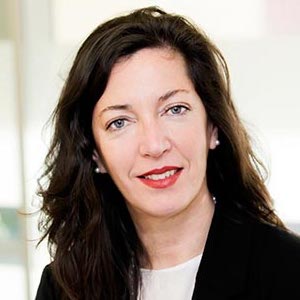
Maria Teresa Zappia, Deputy CEO and Chief Impact & Blended Finance Officer, BlueOrchard Finance
Maria Teresa Zappia is Deputy CEO and Chief Impact and Blended Finance Officer at BlueOrchard Finance. At present, Maria Teresa is responsible for BlueOrchard’s blended finance mandates and overall impact management and measurement practice. Maria Teresa also leads the Sustainability and Impact team at Schroders Capital, the private assets business of Schroders created in June 2021. Maria Teresa has over 25 year experience in EM and frontier markets mainly in the financial sector, has authored a number of publications and is a guest speaker at universities’ postgraduate impact investing classes. Maria Teresa is the convenor of the Impact Principles Advisory Board, represents BlueOrchard at the G7 Impact Taskforce, and is a member of the Impact Investing Institute’s Advisory Council. Prior to BlueOrchard, Maria Teresa covered several positions at the European Bank for Reconstruction and Development, the Asian Development Bank and the Overseas Development Institute based in Africa, Asia, and Central Asia.
